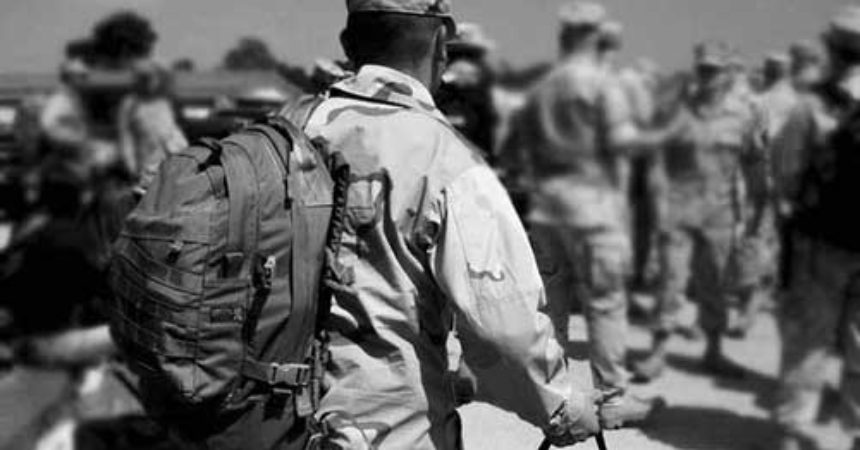That’s why Spousehood set out to find the best ideas and resources for helping children through deployments. Here’s what we found:
 Daddy Dolls
Daddy Dolls

Via DaddyDolls.com
Daddy dolls are almost a staple for deployed families nowadays, but the thing is, they work. Especially for children who are too young to feel satisfied with a phone call or Skype session and children whose love language is touch. You can create one for your little one here.
 Fatheads
Fatheads
You can also create a life-sized wall decal of your deployed spouse to hang in your child’s room. To top it off, Fatheads offers a 25% discount to military families. A decal is a great way to keep a parent in your child’s everyday life and help him or her overcome fears that they might forget mommy or daddy. Keep in mind that you’ll need a high-resolution image for optimal results (at least 1800×1800 megapixels).
 Routines Are Key
Routines Are Key
Routines are an important part of raising healthy children. Since young children’s brains are still developing an understanding of time and planning, repeating the same events and activities every day helps them understand the world around them. Routines create stability and predictability for children and allow them to feel secure. This security and confidence makes it easier for children to tackle big changes in their lives — like deployments.
Although your routine may have to change when your spouse is absent, it doesn’t have to exclude the deployed parent. Incorporating some of the other tools in this article will help keep your spouse in your child’s life as a dependable figure. Try to create routines throughout your child’s life — for mornings before school, for afternoons and evenings, for weekends, and more. Ask all caregivers in your child’s life to follow these routines.

Via Hallmark.com
 Record-A-Books
Record-A-Books
We all know there will be days when your deployed spouse is unavailable for a phone call. Those days can be especially hard on little ones. Having your spouse record a book before deploying can help fill these difficult times and keep your spouse involved in daily routines. (Not to mention the numerous benefits of reading aloud for children of all ages.)
 Videos
Videos
Another way to get through days when communication isn’t possible is to have your spouse record videos for your child. These videos could be made before or during the deployment and could feature a morning or evening greeting and messages of love. They can also be more interactive, like tours of the deployed spouse’s daily life overseas or your child’s favorite sing-along songs.
 Journaling
Journaling
For children who are old enough to write, journaling might be an important part of coping with a deployment. Scientific studies have shown that the simple act of journaling about emotions (even when it’s compulsory) can have tremendous psychological and even physical health benefits. Having your child keep a journal of the thoughts and ideas they wish they could share with the absent parent (and planning to give the journal to the parent when they return) will offer all of these benefits, in addition to ensuring that mom or dad can catch up on life upon return.
 Go Digital
Go Digital
Lucky for parents, the digital age has added numerous resources for deployments. Resources, like Sesame Street for Military Families, offer resources and activities for children to utilize before, during, and after deployments. With MilitaryKidsConnect, children can connect with others, create digital scrapbooks for their deployed parents, watch video tours of the deployment location/region, and even check the weather where their deployed parent is.
 Gain Understanding
Gain Understanding
Every child will react differently to a deployment, and those reactions may even change as your child grows. The Department of Veterans Affairs has developed a resource to help parents understand what their children are going through and what their individual reactions might mean. Understanding your child better will improve your ability to support him or her.




